Lying is bad.
At least that’s what we are always told growing up. And then we find out our parents lied to us – all those magical characters central to our childhood that create fond memories and are used as incentives for encouraging good behavior. Around 8 or 9 years old, those characters are outed as parental conspiracy theories. (you know… Santa, the Easter Bunny, the Tooth Fairy, etc.)
But those lies are ‘different’…they are about the spirit of a holiday, or are born from legends and stories that have been kept alive for centuries, passed down and modified over the ages.
Then there are the “little white lies” – those that are meant to keep from hurting someone’s feelings. “Does this outfit make me look fat, Honey?” “Of course not, you look beautiful.” Because the honest truth might result in hurt feelings, so a ‘white lie’ spares feelings and keeps the peace.
We learn to lie as a social grace, with pleasantries we don’t mean, when in private we might say or think something different. And try to remember not to make those comments in the hearing of young children, because they might be repeated at inopportune moments (you may have seen the TV commercial that does exactly that – “Of, course we’d love to!” “But Mom, you said the ___family is ____ (in front of Mrs. ____)” – awkward!
Kids are smart. They watch how adults ‘play the game’ and take their cues from them. Modeling how you want kids to behave is important. And inevitably, at some point as children, we learn how to use lies to ‘fit in’ and be ‘socially acceptable.’
There are ‘lies of omission.’ You didn’t lie, you just didn’t mention that one, crucial detail that might change everything. Looking for the gray area that keeps you from an uncomfortable situation or needing to have a hard conversation but isn’t ‘technically’ a lie.
There are also what I call ‘knee-jerk’ lies. These are survival based. Sometimes they are a result of being caught off guard, perhaps not anticipating a difficult question and making something up on the spot. Or you are asked to do something by someone where you don’t feel like you can say no (a family member, a boss, a friend). As soon as it leaves your mouth you regret saying it.
The survival lies are generated by the survival part of your brain. It thinks if you don’t lie, you could be in danger (lose your job, lose your community, your family) – in cave dwelling days, not being a part of a community and not being able to feed yourself and your family was a matter of survival; literal life and death situations.
The trick is, can you gracefully recover from the ‘knee-jerk’ survival lies?
If there is a foundation and a culture of trust and vulnerability, then you should be able to acknowledge the instinctive response, own it and correct it.
- “Wow! I guess you caught me off guard. Actually, while I would love to be able to help you, I have a prior commitment and won’t be available.”
- “I know I said I could meet that deadline. I need to clarify: to do so I will need to deprioritize another project. Which project would you like me to move?
- “Well, looks like my mouth responded before my brain fully engaged. I hate it when that happens. Actually, I’m going to need to do some more research and get back to you with an answer.” (adding a bit of humor can make it feel a little easier)
Without trust and the safety that allows for vulnerability, these lies can become traps.
Lies snowball, getting bigger and bigger as you try and support the initial lie (dang that Elf on the Shelf!). Often details are forgotten and the lie spills out. Other times they stay hidden, but fester and cause stress and anxiety.
As you can see, there is a lot of nuance to the concept of lying. It also means there are a lot of different definitions and interpretations of what constitutes a lie. Therefore, there is a lot of room for misunderstanding, upset, and hurt feelings.
There will be times when people are intentionally hiding something or are trying to be misleading and deceitful.
But often, it’s a misunderstanding, a difference of definition, a bad choice made from good intentions. Creating an atmosphere of curiosity and trust allows people to own when they made a bad decision, a ‘knee-jerk’ lie, and even change their mind without feeling like they will lose respect or be embarrassed.
Use curiosity to prevent you from having a knee-jerk response of “you’re lying” or “LIAR!”
Them’s fightin’ words – guaranteed to create emotional explosions.
Thoughts to consider:
- Choose your words with care.
- If it feels like someone isn’t being open or transparent, get curious.
- If information you discover doesn’t match what you remember, clarify.
- Find ways to be truthful and kind. (“The other outfit brings out the color of your eyes, Honey”)
Curiosity and trust go a long way in creating effective communication.

